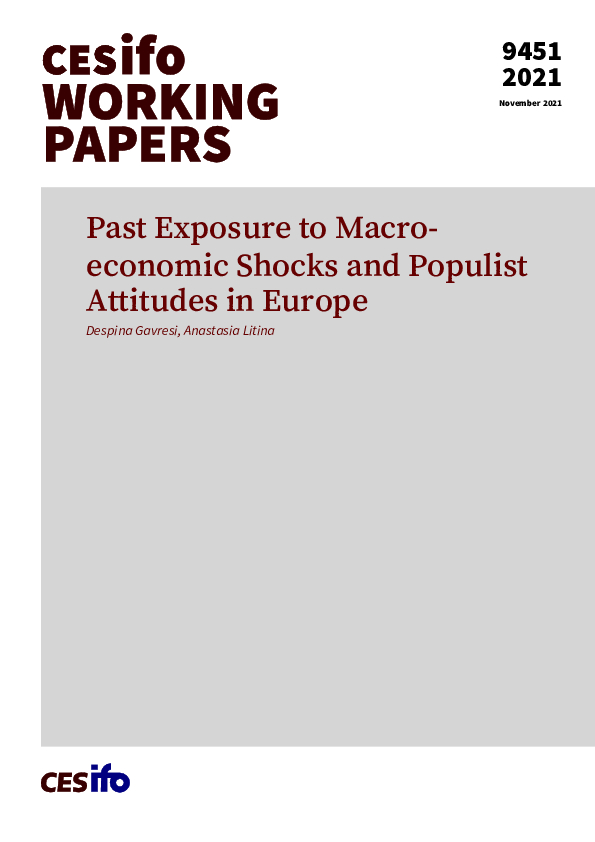Past Exposure to Macroeconomic Shocks and Populist Attitudes in Europe
CESifo, Munich, 2021
CESifo Working Paper No. 9451

This paper explores the interplay between past exposure to macroeconomic shocks and populist attitudes. We document that individuals who experienced a macroeconomic shock during their impressionable years (between 18 and 25 years of age), are currently more prone to voting for populist parties, and manifest lower trust both in national and European institutions. We use data from the European Social Survey (ESS) to construct the differential individual exposure to macroeconomic shocks during impressionable years. Our findings suggest that it is not only current exposure to shocks that matters (see e.g., Guiso et al. (2020)) but also past exposure to economic recessions, which has a persistent positive effect on the rise of populism. Interestingly, the interplay between the two, i.e., past and current exposure to economic shocks, has a mitigating effect on the rise of populism. Individuals who were exposed to economic shocks in the past are less likely to manifest populist attitudes when faced with a current crisis, as suggested by the experience-based learning literature.
Fiscal Policy, Macroeconomics and Growth
Behavioural Economics